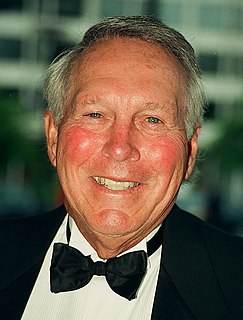A Quote by Johann Wolfgang von Goethe
Commonplaceness, the surrender to the average, that good which is not bad but still the enemy of the best - That is our besetting danger.
Related Quotes
I tell people not to do their best. I don't know when that started. Quite a while ago. Because I . . . when they're doing their best I don't get their best. So I try to persuade them to be average. Because if you're wonderful and you're average, you're still wonderful. If you're a bad improviser and you're average, you're what you are.
Our courage is greater to dare a visible than an imagined danger. A visible danger rouses our energies to meet or avert it; a fancied peril appalls from its presenting nothing to be resisted. Thus, a panic is, usually, a sudden going over to the enemy of our imagination. All is then lost, for we have not only to fight against that enemy, but our imagination as well.
The average detective story is probably no worse than the average novel, but you never see the average novel. It doesn't get published. The average -- or only slightly above average -- detective story does.... Whereas the good novel is not at all the same kind of book as the bad novel. It is about entirely different things. But the good detective story and the bad detective story are about exactly the same things, and they are about them in very much the same way.
Another nation is made out to be utterly depraved and fiendish, while one's own nation stands for everything that is good and noble. Every action of the enemy is judged by one standard - every action of oneself by another. Even good deeds by the enemy are considered a sign of particular devilishness, meant to deceive us and the world, while our bad deeds are necessary and justified by our noble goals, which they serve.
A second thing that an individual must do in seeking to love his enemy is to discover the element of good in his enemy, and everytime you begin to hate that person and think of hating that person, realize that there is some good there and look at those good points which will over-balance the bad points.
Faith is the surrender of the mind; it's the surrender of reason, it's the surrender of the only thing that makes us different from other mammals. It's our need to believe, and to surrender our skepticism and our reason, our yearning to discard that and put all our trust or faith in someone or something, that is the sinister thing to me. Of all the supposed virtues, faith must be the most overrated.
Almost everyone seems concerned with the need to relax tension. However, relaxation of tension, which everyone thinks is good, is not easily distinguished from relaxing ones guard, which almost everyone thinks is bad. Relaxation, like Miltown, is not an end in itself. Not all danger comes from tension. The reverse relation, to be tense where there is danger, is only rational.






































